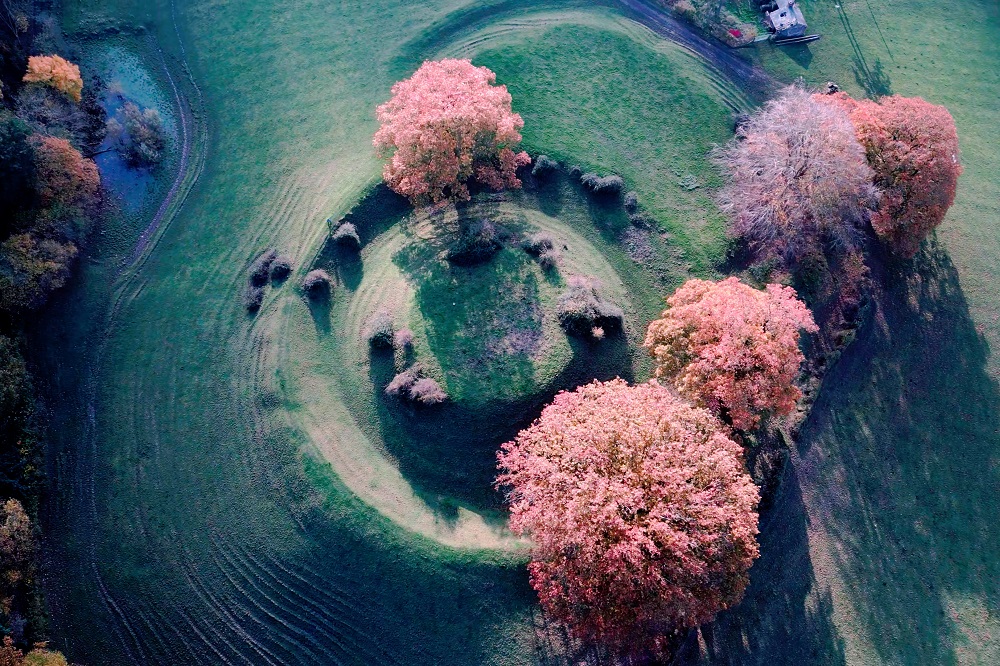Sycharth petition passes 8,000 signature mark

A petition urging the Welsh Government to purchase Sycharth, the ancestral home of Owain Glyndŵr, now stands at over 8,000 signatures, well within reach of the 10,000 needed for it to be discussed on the floor of the Senedd.
The response to the petition, which was set up in November, has picked up pace in the last few weeks, following the announcement that Llys Rhosyr, an important court of the medieval princes of Gwynedd, who ruled Wales after the Romans, had been acquired by Cadw.
Owain Glyndŵr lived at Sycharth until crown forces burned the manor house to the ground during the 1400-1415 revolt.
Nestled in countryside of north Montgomeryshire, south of the village of Llansilin, it was the manorial home of the princes of Powys Fadog and the home, and most probably the birthplace, of Owain Glyndŵr – the last native-born Welshman to hold the title Prince of Wales, who led a led a 15 year-long Welsh War of Independence in the late Middle Ages.
The site, featured in Iolo Goch’s poem, ‘Llys Owain Glyndŵr’, was burned to the ground in May 1403 by the English prince, Henry, during Glyndŵr’s Uprising.
Sycharth is a scheduled monument protected under the Ancient Monuments and Archaeological Areas Act 1979, and currently in private ownership with visitor access by agreement with the Llangedwyn Estate.
Between 2009 and 2011 Cadw ran a project to investigate and conserve historic sites associated with the native princes of Wales. This included archaeological investigative work and conservation at Sycharth.
The cost at the time was £155,000, and also covered installation of a car park, interpretation signage and public access.
However, recent years have seen increased criticism of the condition and lack of enhancement in the site, and earlier this year, Penri Roberts, founder of Cwmni Theatr Maldwyn, called for a public takeover of Sycharth.
Previously, the Welsh Government’s historical environmental service, Cadw said of Sycharth: “As a privately owned monument, public access to and the present visitor facilities at Sycharth are at the discretion of its owners and tenant. The low-key facilities recognise this and the status of the site as a working dairy farm with an adjacent domestic property.”
National importance
The petition was set up back in November after discussions about the current state of the site, and the lack of public awareness of the area’s national importance.
The petition reads: “History is such a key subject for us here in Wales. Stories from our nation show us how we have developed over the centuries to become what we are today.
“Notable characters have steered this interesting history, with none more prominent than Owain Glyndŵr, who has contributed so much to our identity, and for many, he is a symbol of the nation.
“It is very disheartening to see that Sycharth, Glyndŵr’s home, is almost forgotten deep in the heart of rural Powys, and the place is not very accessible for people to visit.
“It is time for the Government to ensure that this vital site is safeguarded for the next generation, by purchasing it and ensuring that it is more accessible to enable people to visit and appreciate this wonderful site.
“It is disappointing to see that all our castles throughout Wales are protected, but that this site is hardly advertised, not to mention celebrated.
“It’s time to change the way we view the history of Wales, and Sycharth would be a good starting point.”
Support our Nation today
For the price of a cup of coffee a month you can help us create an independent, not-for-profit, national news service for the people of Wales, by the people of Wales.





